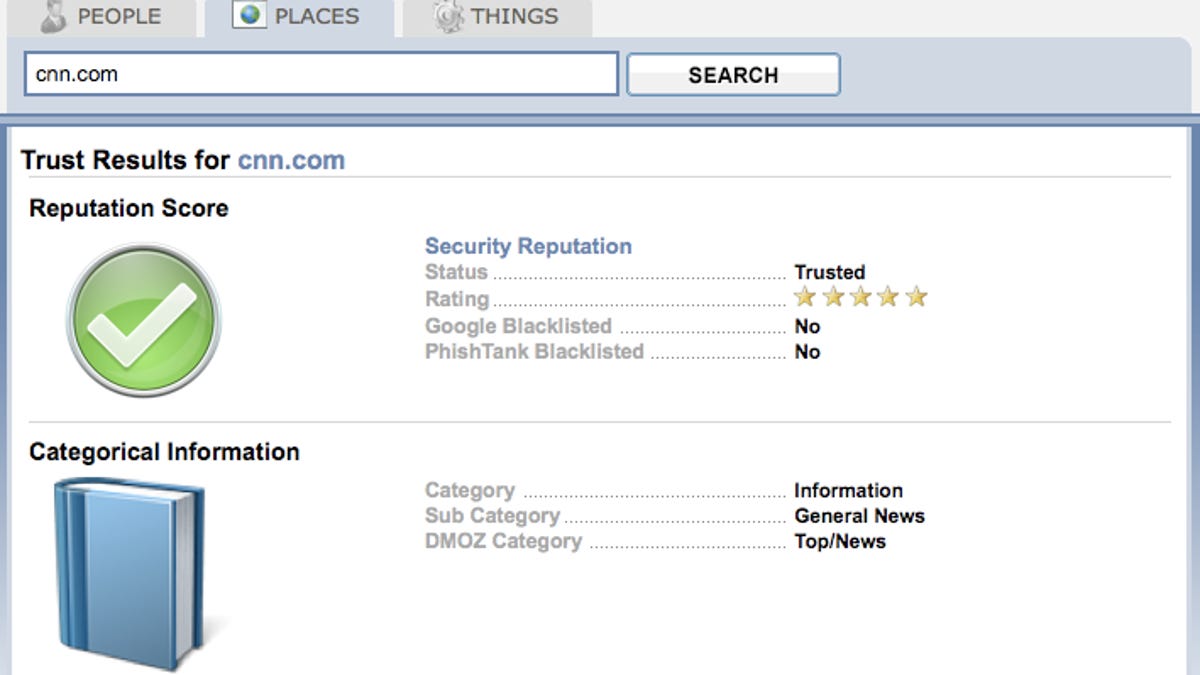Purewire shows off Web reputation system
At Demo 09, company presents its Trust service, which adds collective ratings for almost any Internet user or Web site. If there's critical mass, this could be very effective.

PALM DESERT, Calif.--If you've spent any time online, you've almost certainly found yourself wondering about the trustworthiness of the people and Web sites you encounter every day.
Already, individuals are often rated on many sites, like Slashdot or eBay. But it can be difficult to easily discover whether you can trust what you come across, regardless of where you go online.
That's where a company called Purewire and its Trust service come into play. The service, which Purewire announced Tuesday here at Demo 09, is intended to give people a way to quickly and simply see whether they can feel safe dealing with others online, visiting certain sites, and buying items on auction sites, Craigslist or others.
Essentially, Purewire Trust is an across-the-board reputation system that collects intelligence about a wide range of people and sites based on the wisdom of the so-called crowds. It's designed to track and monitor behavior, looking for patterns and reporting back what seems like fairly straightforward and easy to understand trust metrics.
As an example, Purewire CTO Paul Judge said the system could be used for things like someone wanting to buy something on Craigslist, for a parent wanting to be sure that his or her kid's friends are safe, or for a college admission officer wanting to know more about an applicant.
Similarly, Purewire Trust could be used to get more information about the reputation of someone who makes a Facebook friend request. By clicking through, a user can see how others have rated the Facebook requester--whether that person is trusted, untrusted, or has some negative ratings, but is largely viewed positively. With that information in hand, Judge suggested, people can make more informed choices about who they interact with.
The same idea can be applied to a seller, say, on Craigslist. Before buying something, a user can look and see if others have had experiences with the seller, and if so, how they're viewed.
This is basically a broad version of the eBay ratings system, but not owned by any specific site. It can be used not just to check on other people, but also on whether Web sites are considered safe--as in whether they contain malware or viruses, all without needing any external software.
It seems like this could be a very useful system, but like so many collaborative intelligence types of systems, it really requires a critical mass of users' participation before it becomes effective. And that creates a chicken-and-egg problem: without the users, others won't get involved. And so forth.
But if Purewire finds itself with a large number of users, then it could be something that provides the intelligence that is sorely missing across the broader Internet, and that would only be a good thing.

